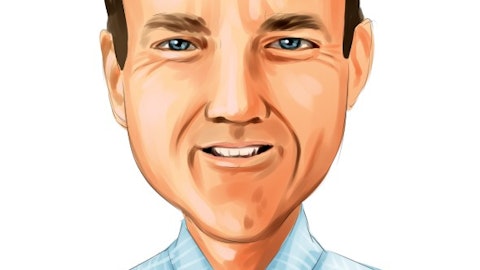Icahn Raises His Stake in WebMD to 9.49% (NYTimes)
Mr. Icahn said in a filing with the Securities and Exchange Commission that he had bought call options on WebMD’s stock to raise his stake from his previously disclosed holdings of 7.94 percent. At the time of that initial disclosure, on Oct. 21, Mr. Icahn called WebMD’s shares “undervalued from a long-term perspective.”
The billionaire investor Carl C. Icahn disclosed late Thursday that he had increased his stake in the WebMD Health Corporation, an online information provider, to 9.49 percent.
Man Group Shares Rise on Buyback, Decline in Redemptions (SFGate)
Man Group Plc, the biggest publicly traded hedge fund, said it would buy back $150 million of stock and that redemptions declined in October. The shares rose. Man Group plans to use a portion of its $1 billion of surplus regulatory capital to repurchase shares, the London- based company said in a statement today. Chief Executive Officer Peter Clarke said requests by clients to pull money declined last month from September after investors became less concerned that Europe’s sovereign debt woes would trigger a global financial crisis. “Redemptions have fallen back to more normal levels,” Clarke told reporters on a conference call. “The equity markets have a more solid feel to them.”
Gold Traders More Bullish as Hedge Funds Increase Bets on Gains (Businessweek)
Davidson Kempner Is Raising First Private-Equity Pool (SFGate)
Davidson Kempner Capital Management LLC, the New York-based hedge-fund operator with about $17 billion in assets, is raising its first private-equity fund, targeting about $400 million for distressed investments. The firm is almost halfway to the goal for Davidson Kempner Long-Term Distressed Opportunities Fund LP, according to a letter sent last month to investors, a copy of which was obtained by Bloomberg News. The firm, which expects to complete fundraising by year-end, held a first close in July at $193.5 million. Donald Cutler, a spokesman for Davidson Kempner, declined to comment on fund-raising.
Why Hutchin Hill Hired Nobel Prize Winner Thomas Sargent (Reuters)
Dealbook’s Azam Ahmed explains why hedge fund Hutchin Hill has hired this year’s Economics Nobel laureate, Thomas Sargent: “While some of that research is pretty lofty, the rationale for hiring someone like Mr. Sargent is simple — that he can help the hedge fund figure out the effect of policy changes on people’s thinking, a critical element when judging how an economy will fare.” Well, that’s the ostensible reason, anyway — the reason given in Hutchin Hill’s September letter to investors. But it’s not the real reason.
Jim Simons’ Renaissance Technologies Rebirth (NYPost)
Renaissance Technologies, the super-secretive $19 billion hedge fund started by math whiz Jim Simons, is doing just fine without its founder. Almost two years after Simons stepped back from day-to-day operations, the firm’s most troubled fund, the Renaissance Institutional Equities Fund, is staging a major comeback. RIEF, with assets of $6.1 billion, is up 31 percent this year, notching returns of nearly 5 percent last month, sources said. Equally impressive in a roller-coaster market, the fund’s volatility is just one-third that of the Standard & Poor’s 500 index, one source said.
Corzine Resigns from MF Global (NYTimes)
Jon S. Corzine has resigned from his posts at the embattled brokerage firm MF Global, the company announced on Friday. Mr. Corzine, the firm’s chairman and chief executive, will not seek his $12 million severance from MF Global, which filed for bankruptcy on Monday, according to the company’s statement. The resignation capped a disastrous week for Mr. Corzine, as he saw MF Global lose two-thirds of its market value, file for bankruptcy and face a handful of federal investigations into more than $600 million in missing customer money. The decision also signaled a rapid downfall of what was supposed to be Mr. Corzine’s grand return to Wall Street — a comeback that began in early 2010, after a roughly 10-year sabbatical that he spent in politics.
Ex-Credit Suisse Oil Head McKenna Starts Mastic Hedge Fund (Businessweek)
Kieran McKenna, who traded oil for Credit Suisse AG and JPMorgan Chase & Co., started a hedge fund that will accept money from outside investors next month, according to Mastic Investment Advisory AG, his new company. The Mastic Commodity Fund, based in Zug, Switzerland, will begin trading oil and energy products this month with partners’ capital, Mastic Investment said in an e-mail. McKenna resigned from Credit Suisse as global head of oil in July to set up the firm. He declined to give details on the fund’s size or targets.
40pc of Hedge Funds Mislead Investors, According to Oxford University Study (Telegraph)
The research, in conjunction with Duke University, claims that 7,000 individual hedge funds managed to misinform their clients about performance results between 2007 and 2011. The results showed that out of the 18,000 funds tracked, those that had changed historic data after the fact, performed considerably worse than peers with an accurate reporting track record. The study says that “unreliable disclosures” should work to warn investors about future performance. The Securities and Exchange Commission, the US regulator, recently adopted new rules requiring “large hedge funds” to report quarterly information to a recently established Financial Stability Oversight Council set up under the Dodd-Frank legislation. Dr Tarun Ramadorai, from the Oxford-Man Institute of Quantitative Finance, said the research had highlighted the “unreliability of voluntary disclosures” made by hedge funds.
MF Global Masked Debt Risks (WSJ)
For the past two years, MF Global Holdings Ltd. may have disguised its debt levels to investors by temporarily slashing the debt it was carrying before publicly reporting its finances each quarter, according to an analysis by The Wall Street Journal. The activity, referred to in the financial industry as “window dressing,” suggests that the troubled financial firm was shouldering more risk and using more borrowed funds to facilitate its trading than investors could easily detect from the firm’s regulatory filings.






